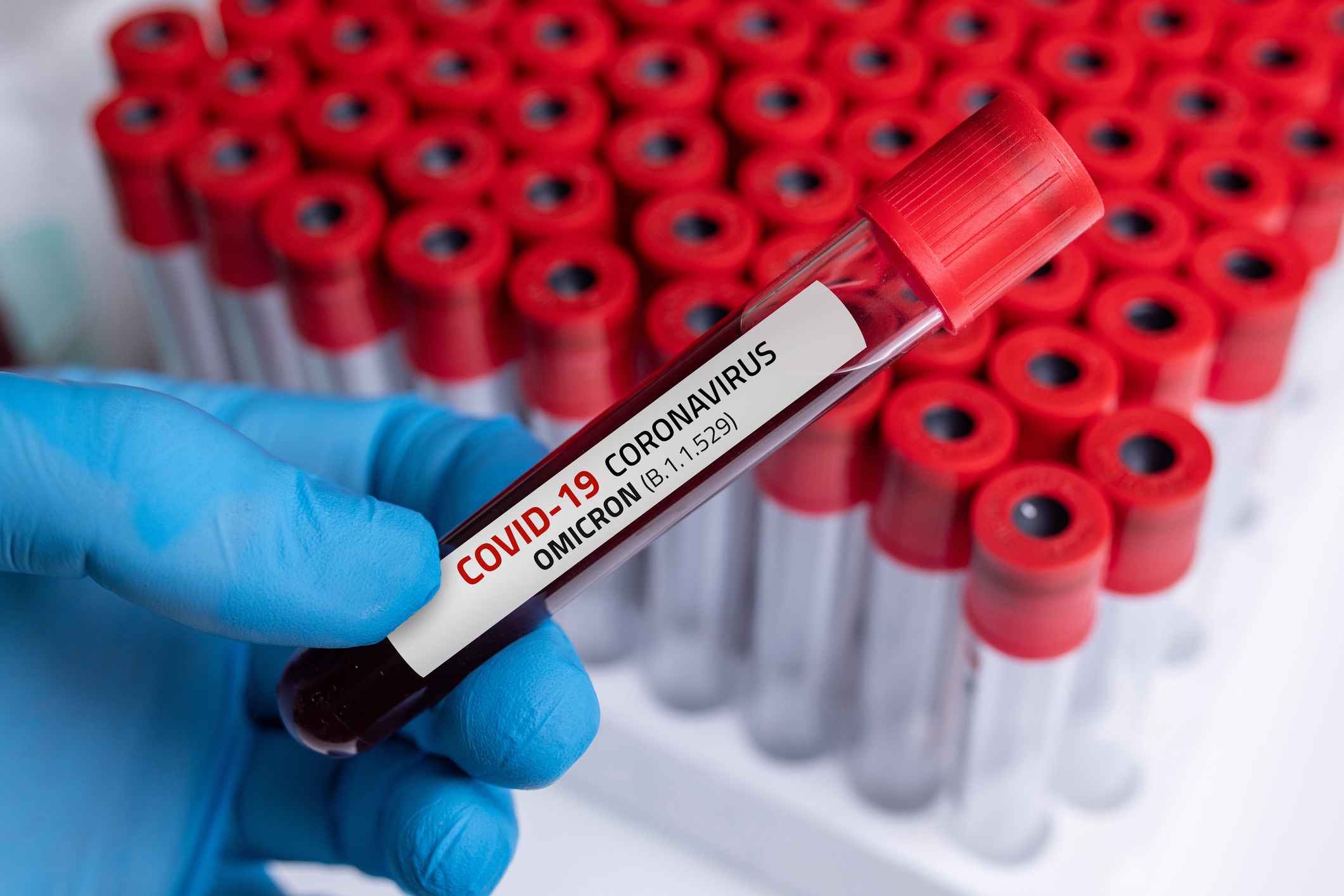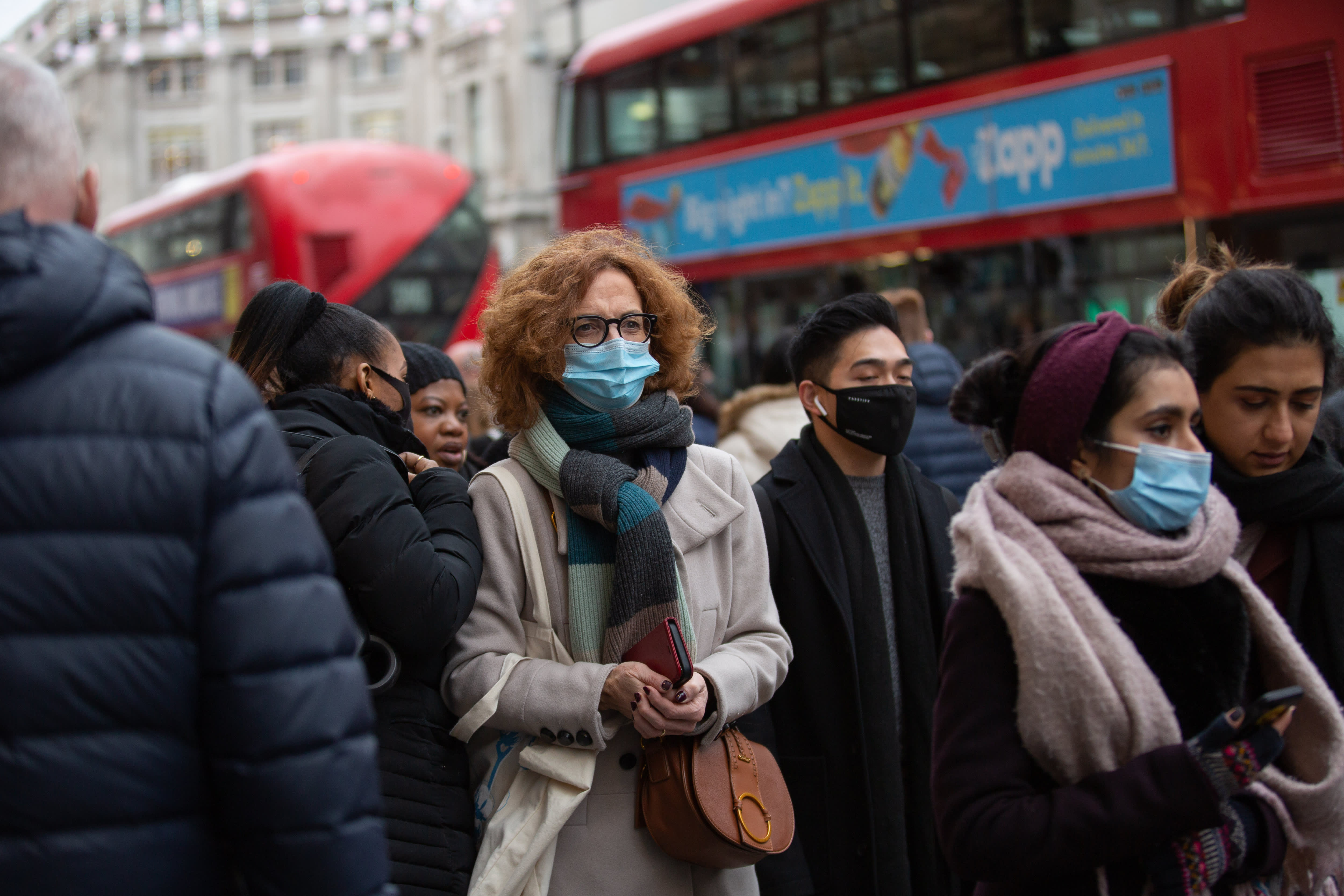While plenty remains to be seen about the new omicron variant and how it will affect the coronavirus pandemic, early studies are showing signs of how current COVID vaccines and booster shots perform against the strain.
Chicago Department of Public Health Commissioner Dr. Allison Arwady said Tuesday there is increased confidence that omicron "is likely to spread quickly" and even faster than the delta variant, which is behind the latest surge in the U.S., but that vaccines continue to offer at least some protection.
"The early data suggests that this is probably, you know, maybe two to two-and-a-half times as easy to spread, as contagious as the delta variant," she said.
According to an analysis Tuesday of data from South Africa, where omicron is driving a surge in infections, the variant seems to not just spread more easily from person to person, but is better at evading vaccines while causing less serious illness.
Feeling out of the loop? We'll catch you up on the Chicago news you need to know. Sign up for the weekly Chicago Catch-Up newsletter here.
The White House on Wednesday insisted there is no need for a lockdown because vaccines are widely available and appear to offer protection against the worst consequences of the virus.
Arwady said the city is continuing to push for vaccinations and booster shots for that same reason, though an increase in breakthrough infections is expected and there are heightened concerns for the unvaccinated.
"We do think at this point, vaccines are very likely to continue to protect against severe disease, but because there will be probably more transmission that makes it harder to control efforts," she said. "And it puts everybody at some more risk."
So far, the Pfizer vaccine seems to offer less defense against infection from the variant, but still good protection from hospitalization, according to an analysis of data from South Africa, where the new variant is driving a surge in infections.
According to the data, a two-dose Pfizer-BioNTech vaccination appeared to provide just 33% protection against infection during South Africa's current omicron wave, but 70% protection against hospitalization, according to the analysis conducted by Discovery Health, South Africa’s largest private health insurer, and the South African Medical Research Council.
Still, the 33% marks a significant drop from the 80% protection against infection afforded during earlier periods.
The researchers say it's encouraging that the study shows that people fully vaccinated with Pfizer have 70% protection against hospital admission during the omicron surge. That's still a drop from the 93% protection seen in South Africa’s delta-driven wave.
Arwady said she's "feeling pretty confident" that the variant will lead to more breakthrough cases and reinfections in those who have already had COVID, but the severity of those cases remains unclear despite early breakthrough cases in the Midwest showing mild symptoms, if any.
"We think based on what we're seeing now, omicron is unlikely to be more severe than delta, which is which is very, very good news, but I'm still skeptical of claims that there's significantly reduced severity," Arwady said. "So great news, it doesn't look like it's making people sicker than what we have now, but I do know there are a lot of people who feel like this is really not making people sick at all and that is not yet something that my team feels that the data shows."
The data from South Africa shows that while case numbers are rising, hospitalizations are not increasing at the same rate, leading the scientists to believe that the risk of hospitalization from omicron may be lower than delta or earlier variants. Hospital admissions for adults diagnosed with COVID-19 are 29% lower compared to the wave that South Africa experienced in mid-2020, after adjusting for vaccination status, according to the analysis.
But the World Health Organization's COVID-19 technical lead, Maria Van Kerkhove, said Wednesday that increased transmission will result in increased hospitalizations that burden health-care systems, some of which will fail.
“Omicron is spreading at a rate we have not seen with any previous variant. We are concerned that people are dismissing omicron as mild,” WHO Director-General Tedros Adhanom Ghebreyesus said. “Surely we have learned by now that we underestimate this virus at our peril.”
For unvaccinated populations, particularly those most susceptible to COVID, Arwady anticipates "accelerated transmission and then a rising number of hospitalizations for severe illness."
Even if omicron proves milder on the whole than delta, it may disarm some of the life-saving tools available and put immune-compromised and elderly people at particular risk as it begins a rapid assault on the United States.
"We know that people infected with omicron can have the full spectrum of disease, from asymptomatic infection to mild disease, all the way to severe disease to death," Van Kerkhove said.
And if a dueling surge of both delta and omicron hits, experts fear hospitals and staff won't be able to withstand the increase.
“Our delta surge is ongoing and, in fact, accelerating. And on top of that, we’re going to add an omicron surge,” said Dr. Jacob Lemieux, who monitors variants for a research collaboration led by Harvard Medical School.
“That’s alarming, because our hospitals are already filling up. Staff are fatigued,” leaving limited capacity for a potential crush of COVID-19 cases “from an omicron wave superimposed on a delta surge.”



